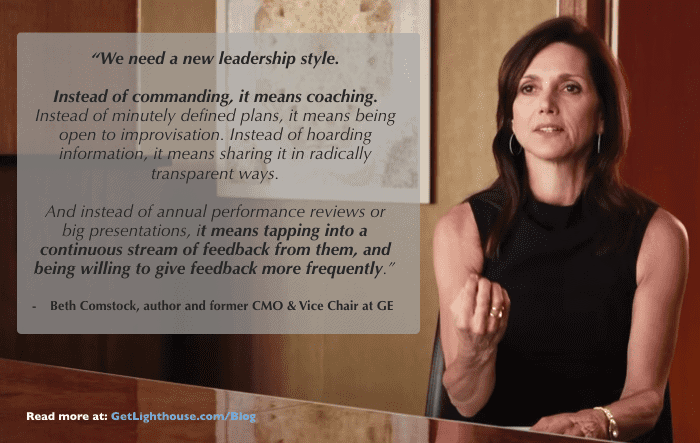What makes a great coach? Is it possible to lead well without employee coaching? What does having a good coach mean to your team?
Gartner research shows that employees who report to good coaches are up to 40% more focused.
It really is that simple: coaching is a must for great leaders. To be an effective leader, you need to know how to get the most out of the people around you.
Yet, this alone isn't enough. You also need to give your team members opportunities to grow. You have to figure out what each person needs and support them on their unique path. In doing so, you'll not only keep them engaged, but put their focus to good use.
Today, we give you specific coaching tips you can apply to your team members to bring out their best, and retain them long term.
Table of Contents:
- Focus coaching employees on everyone's Task Relevant Maturity
- Know when to let your people find their own answers
- Praise their progress
- Use your 1 on 1s for coaching employees
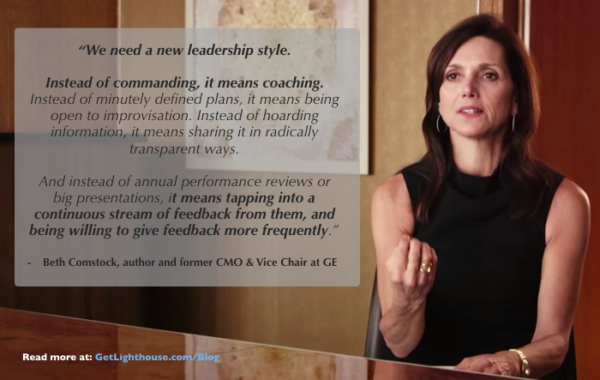
1) Focus coaching employees on everyone's Task Relevant Maturity
Coaching is all about context. As the old saying goes, "if you judge a fish by its ability to climb a tree, it will live its whole life believing it's stupid.” You need to recognize what each team member can and cannot do well and lead them accordingly.
Unfortunately, many managers miss the nuance of that lesson.
Managers often judge employees based on previous performance. They assume that there are good, average, and poor employees, who will always do the same quality of work regardless of the task.
The definition of Task Relevant Maturity and why it matters
Former Intel CEO Andy Grove defines Task Relevant Maturity (TRM) as:
"How often you monitor should not be based on what you believe your subordinate can do in general, but on his experience with a specific task and his prior performance with it – his task relevant maturity.
…as the subordinate's work improves over time, you should respond with a corresponding reduction in the intensity of the monitoring.”
Many managers ignore the concept of TRM, which can lead to serious problems such as:
- Delegating tasks to the wrong people
- A loss of confidence by your best employees
- An inability for you and your team to deliver great results
This all happens, because managers don't adjust how hands on, or hands off they are with their team. Instead, this is how Grove recommend you approach coaching your team:
By applying Task Relevant Maturity instead, you will know exactly when to be involved, and to what degree.
The bottom line: you should be coaching based on the situation, not the person.
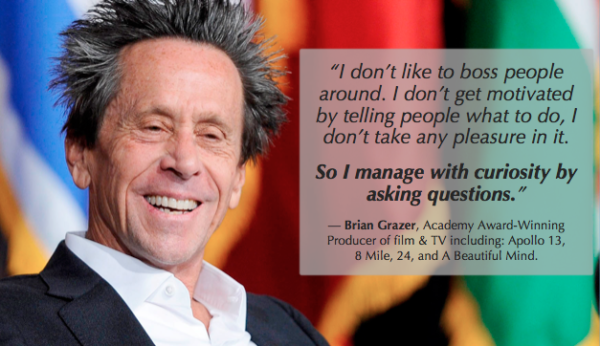
2) Know when to let your people find their own answers
Great coaches know when to let people work to figure out the answers on their own. They also know when to be hands-on and specific with their advice.
Managers can determine when to step in using the waterline principle, which textile manufacturer W.L. Gore uses in their training:
"The waterline principle means that it's ok to make a decision that might punch a hole in the boat as long as the hole is above the waterline so that it won't potentially sink the ship.
But, if the decision might create a hole below the waterline which might cause the ship to sink, then associates are encouraged to consult with their team so that a collaborative decision can be made.”
You can apply the same idea to employee coaching. How much you allow team members to learn from a mistake depends on the severity of the consequences. If it's a mission-critical task, or high risk, help them out more and be more prescriptive. Meanwhile, if it is a low-risk project or task, give them more leeway to experiment, learn, and make mistakes.
Remember also that people learn best when they're able to make decisions on their own. Try not to always tell them the answer.
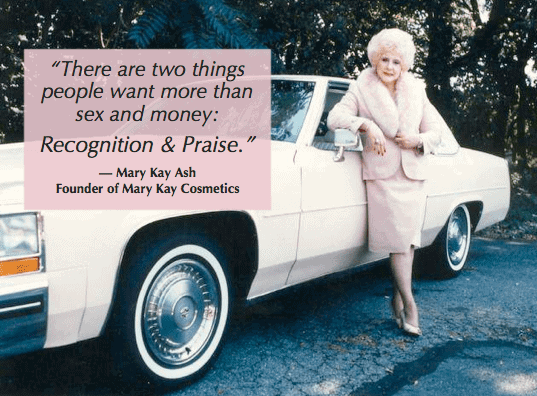
3) Praise their progress
Encouraging creativity and independent decision-making will help boost your team members' confidence and motivation. It will also create opportunities for you to praise their progress.
When employees make breakthroughs and show success in building new skills, give them specific praise to create a "psychologically safe” environment. They'll be able to more confidently ask questions, take risks, and make mistakes knowing you'll reward them for it.
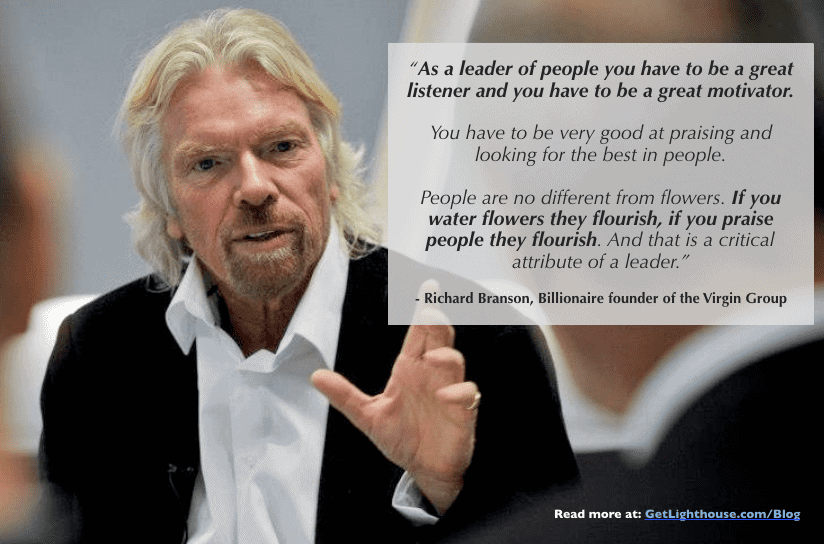
Be specific when praising
As a coach, you need to be positive and encouraging in a genuine way. That can only happen if you're paying attention to your team's work.
Great praise, that highlights your team member's past good efforts can have a bigger impact than you may think. One Harvard Business School study found that people become up to 30% more creative at problem solving when reminded of past successes.
Praise that either is non-specific, or isn't genuine will have the opposite effect on your team; praise is only meaningful if they know you truly gave it your attention and really mean it. Focus on specific things you liked in their work and tell them what you want to see more of.
Taking the time to give this kind of specific praise makes a big difference, and can prevent the most costly problem: turnover.
In a Glassdoor survey, they found that 53% of respondents felt they would stay longer at their company if they felt more appreciation from their boss.
Want to be more likely to retain more of your team? Give them specific praise.

Praise employees even when their work isn't perfect
A frequent mistake managers make is being overly negative with struggling employees. You have to understand that people are typically not making mistakes on purpose. Finding positives in an underperformer's work can be tough, but it's possible. Set fair expectations early on and measure them against those standards regularly.
If you're seeing improvements in an employee's work or effort, recognizing it will help keep them motivated and working to get better. You may be surprised how quickly their performance turns as they start doing more and more of the things you recognize better.

4) Use your 1 on 1s for coaching employees
Coaching once a year in performance reviews really frustrates people. The most obvious reason? No one wants to wait until you're deciding on their promotions and compensation to find out how they're doing.
A much simpler, timely way to handle employee coaching then is through frequent 1 on 1s.
Use the versatility of 1 on 1s to your favor
We at Lighthouse like to compare 1 on 1s to a Swiss Army knife for whatever topic is most important at that moment for you and your team members.
They can be used weekly or biweekly to cover key topics like:
- Providing feedback or praise for recent work
- Asking employees key questions to understand their perspective and ideas
- Helping underperformers improve
- Getting the most out of your best performers
Great 1 on 1s also help you write more meaningful performance evaluations, because now you have a reference point for what they've done and how they've grown throughout the year.
Coaching regularly during 1 on 1s will also show your people you're interested in their success and performance throughout the year, not just at review time.
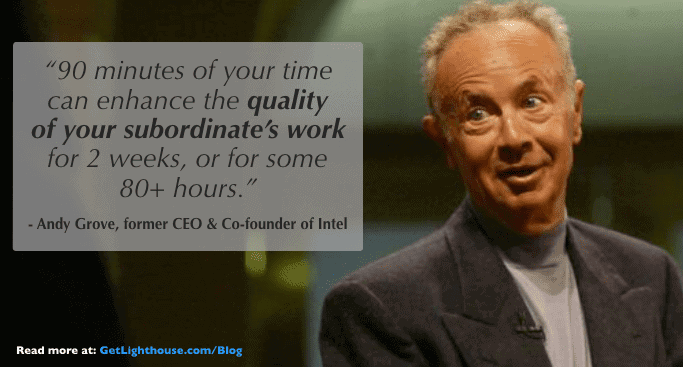
3 tips for successful employee coaching in your 1 on 1s
If you're having regular 1 on 1s, how can you best coach in them? How can you use them to start improving your employees' performance?
These three tips can serve as a foundation for your coaching efforts.
Ask coaching questions
Asking good coaching questions are a key step for every great coach. They can help you understand how to improve your coaching in three key ways:
- Learn how to best support your employees' professional development
- Provide more effective feedback
- Understand what works best for each person uniquely
To help with professional development, you can ask some of the following questions:
- What's one thing you'd like coaching from me on?
- What skills would you like to work on?
- What area of your job do you want to work on your confidence?
To provide more effective feedback, you can try the following questions:
- What medium do you prefer to receive feedback through? (chat message, email, in person, etc.)
- What routine for feedback works best for you? (in 1 on 1s, as-it-happens, etc.)
To understand employees' individual needs, these and similar questions can help:
- How do you learn best? What is your favorite medium, format, or approach?
- When do you like to work on developing new skills? Do you have a routine for it?
By asking questions like these, you'll find out how your coaching will be most effective for each person on your team. It also shows your team members you're willing to listen to them, just as much as you expect them to listen to you and your coaching.
There are many other employee coaching questions that can help you become a better leader. To see them, read our article: 12 Questions to Ask Your Team to Become a Better Coach at Work.

Take time to review your team members' key work and give feedback
While you may sometimes be tempted to deliver feedback on the spot, doing so during a 1 on 1 is a much better idea. Analyze your team members' work ahead of time, hear their side of the story, and always consider the context. This will allow you to give meaningful, constructive feedback every time.
Prepare for 1 on 1s by organizing your thoughts and feedback. During the actual meeting, listen to what they have to say and adjust your coaching based on the circumstances and context they provide.
Then, once you've both had time to speak, listen, and ask quesitons, use what you've learned to act and suggest improvements immediately. Keep in mind - ambiguity will hurt your progress as a coach. The more specific you can make the next steps for your employees, the more likely they are to act on them.
To learn more about how to give feedback, read our guide: How to Give Constructive Feedback to Motivate and Improve Your Team.
Ask your team for suggestions
When Satya Nadella became Microsoft's CEO in 2014, the company was facing an identity crisis. To address the root causes of the issue, Nadella started asking questions internally.
"Job one was to build hope. This was day one of our transformation – I knew it must start from within.”
No matter how involved you are in your team's work, you can't be everywhere at once. There are often details affecting your employees' performance that go undetected.
Asking questions about your team is the best way to know what to improve.
Here are some examples of what to ask to develop your team or company:
- How could we change our team meetings to be more effective?
- What would convince you to leave for a job somewhere else?
- Do you feel overworked, under-worked, or just the right workload?
The benefits of asking questions about your team during 1 on 1s are two-fold:
- a) You can detect issues early and prevent them from snowballing, and...
- b) You can improve as a coach by collecting team feedback on a regular basis.
For a more detailed look at team questions, read One on One Meeting Questions Great Managers Ask Their Teams.
Conclusion
Today's managers must be capable of fulfilling many roles. The role of the coach is among the most important ones. Coaching team members includes keeping your team motivated, reviewing their work and providing feedback, anticipating roadblocks, and fostering independence but letting them learn from mistakes.

What is employee coaching?
Employee coaching means getting the most out of your team by:
1) Motivating your team through praise of good work and improvement
2) Reviewing their work to give feedback on what to do better
3) Helping your team be confident and independent by knowing when to be hands on and hands off with everyone on your team
How to start a coaching session with an employee?
Prepare for coaching sessions by anticipating your team members' questions and concerns. You can start sessions by listening to what they have to say, then providing your feedback based on that additional context, and finally coaching them on how to improve and the most important next steps they should take.
What is an example of coaching?
One example of coaching is having regular conversations about a team member's growth and development. In your regular 1-on-1s, give them praise for things you want to see more of and constructive feedback for areas they can improve.
What is employee coaching and mentoring?
Employee coaching and mentoring means developing the skills of your employees to bring out their best and help them grow and build skills they're interested in. This can be done in the form of formal reviews, regular 1 on 1 discussions, and informal mentoring sessions with experts at your company or in your network.
